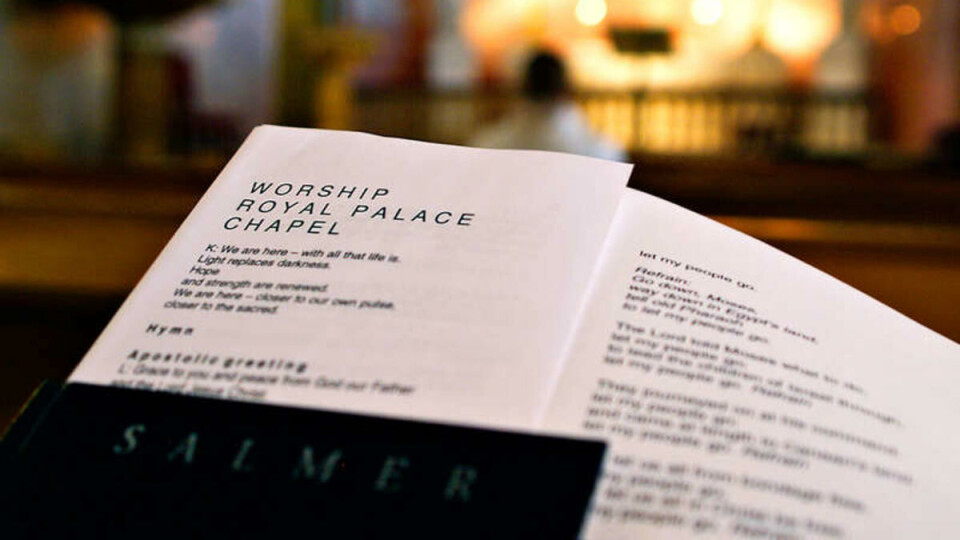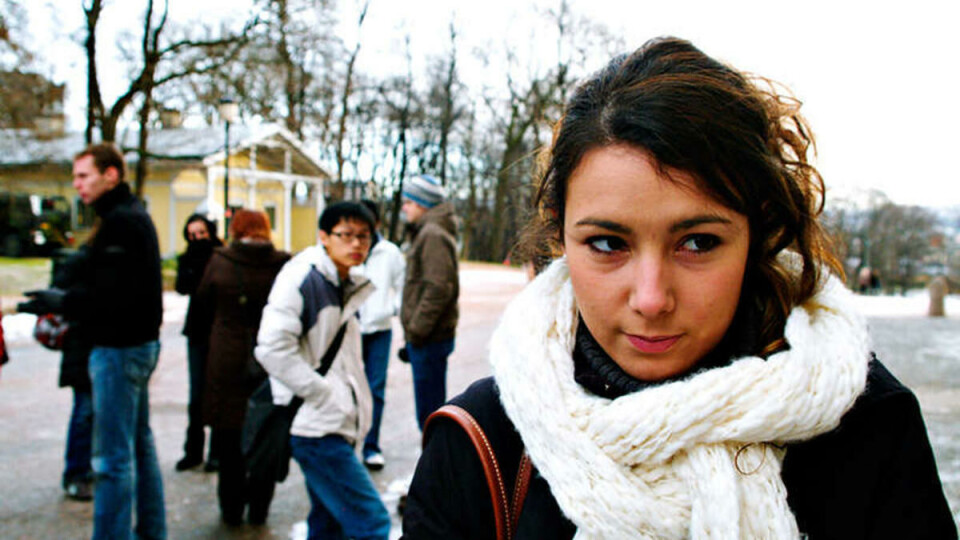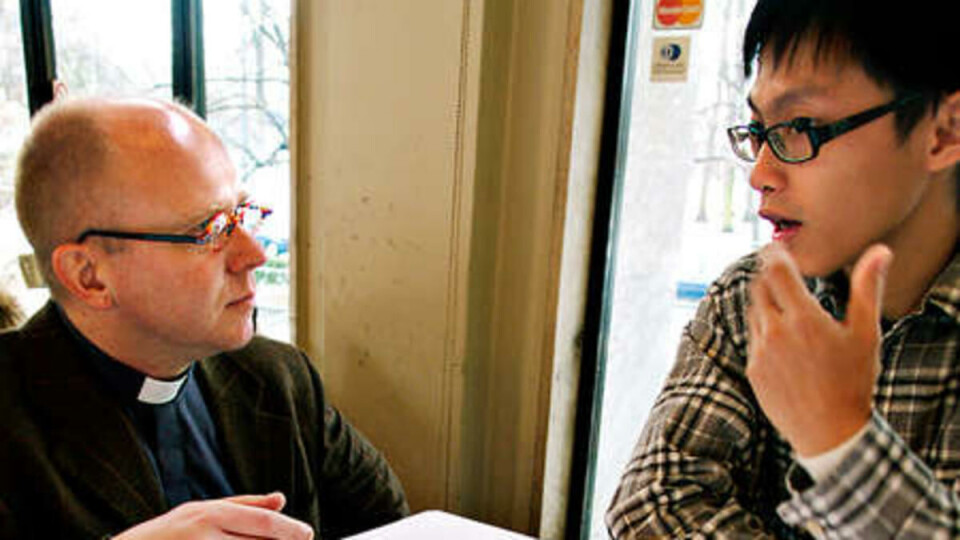
Between heaven and home
Church services in English may be a spiritual harbour for students who are far from home.


«Let us, as we always do here, pray together.»
When student priest Nils Jøran Riedl invited to a common prayer at Slottskappellet last Sunday, hands from all over the world were joined in prayer. To many of the people attending the service, this was their first meeting with a Norwegian church.
– It was very different from French services. It was more lively and a lot less moralistic than what I am used to, says Fanny Dutrey, a student at business administration at BI, Norwegian School of Management in Nydalen.
Cure against homesickness
According to Riedl, this is the first time a parish in the Church of Norway offers English services on a regular basis. The initiative comes from the student priests themselves.
– We celebrated our one hundred year anniversary this autumn and as a part of the celebration we held our first service in English. The response was very positive. Students who do not speak Norwegian have very limited offers and we felt that there was a real need for something like this. These people are far away from home and we want to give them priority, he says.
– Are the international students more interested in what the student priests can offer than the Norwegian students are?
– I don’t know about that, but my impression is that the international students are more eager to join in when something happens.
A way to meet Norwegians
– Being a Protestant myself, I could not be happier for this. I would not want to attend a church service where I didn’t understand the language, says Tam Kwok Shun from Hong Kong, who is studying at BI Nydalen. Nevertheless, he wonders about the organisation of church services for students.
– Here, religious activities are part of the student’s welfare services. That would never have happened in Hong Kong, he notes.
The Norwegian law student Jarle Langeland, however, recounts compulsory church attendance three days a week as part of his daily life as a student in the United States. He hesitates to comment on his experiences of this, but praises the English-language services at Slottskapellet.
– As an exchange student you often find yourself being surrounded by international students. These services may be a good way of becoming more integrated and to meet more Norwegians, he says.
Ricardo Duque, President of the International Students’ Union in Oslo, welcomes the English-language services on behalf of the students who are interested.
– Students have a right to believe in what they want, and it is great that those who want to practice their beliefs are given the chance to do that.
Praising the Lord
Student priest Riedl has not received any negative reactions. Instead he says that people have been very positive, despite the fact that the Norwegian language will be put aside every forth Sunday from now on.
– Doing a whole service in English comes as a challenge, but we hope that the international students will help us out along the way so that we can do this together.
The priest adds that he doesn’t think that the subject of the services will be influenced by the fact that the group of listeners are from different nationalities.
– I always think about who I’m speaking to, but students are students, he says.
Rieldl has also noticed that the majority of international students are from BI Nydalen, where he himself is working.
– At BI Nydalen the student priests have had a good collaboration with the International Office. They often send out e-mails with information about us, something that I haven’t experienced anywhere else, he explains.
































